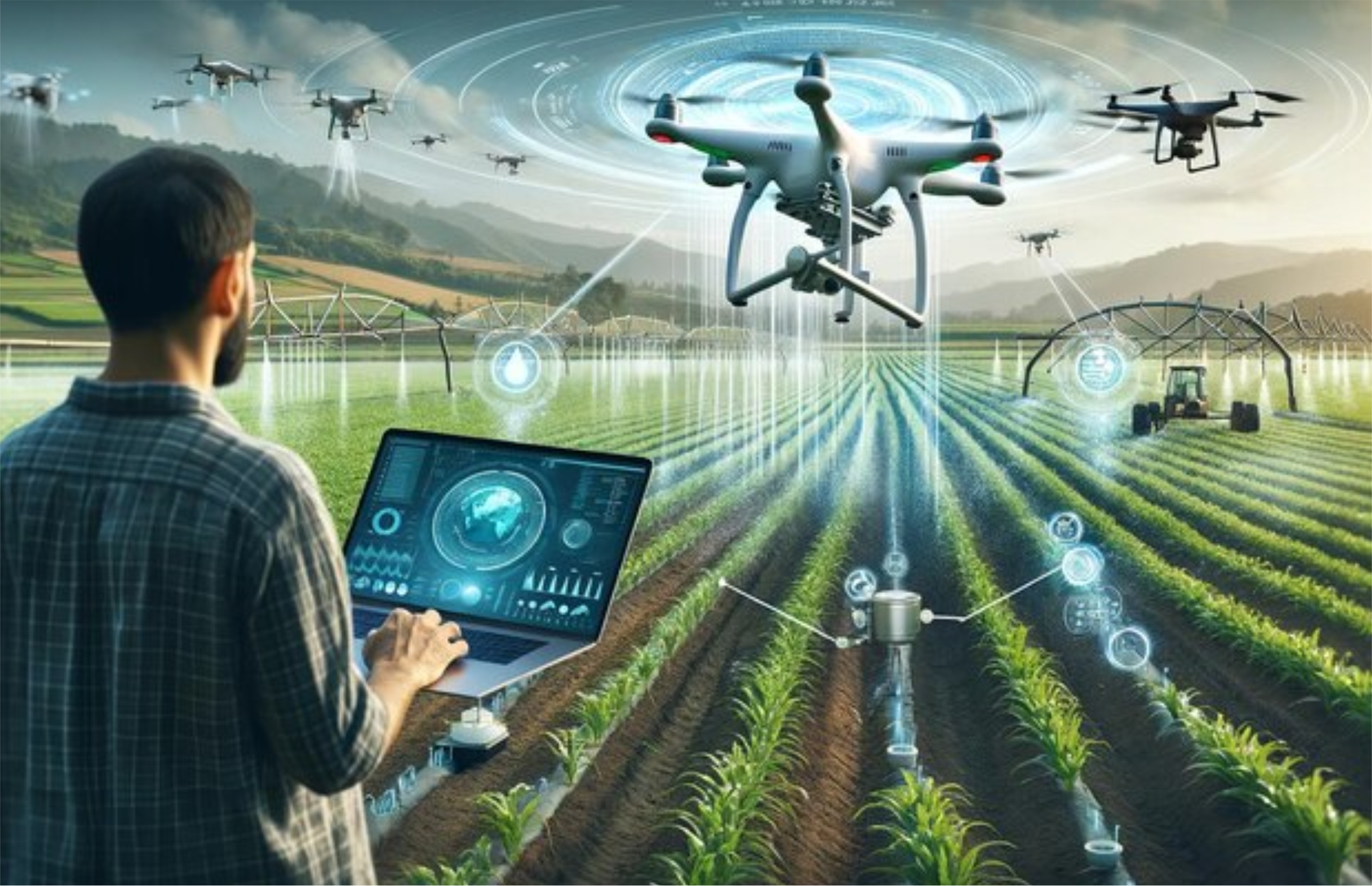In today's rapidly evolving agricultural landscape, farmers are encountering a host of new challenges. With a growing global population and limited land resources, the pressure is on to produce more food while minimizing environmental impact. Fortunately, technological advancements are offering solutions, reshaping farming practices for the better and ensuring sustainability for future generations.
Introducing AI in Agriculture: A Farmer's Trusted Companion
Imagine having a knowledgeable partner alongside you on the farm, aiding in decision-making and enhancing efficiency. That's the essence of AI in agriculture. It serves as a valuable ally, utilizing data-driven insights to forecast weather patterns, detect pests early, and optimize planting and harvesting schedules for maximum yield.
The Role of AI in Farming:
- Informed Decision-Making: AI empowers farmers with valuable insights, enabling them to make informed decisions regarding irrigation, fertilization, and other critical aspects of farming operations.
- Increased Productivity: Through automation and real-time monitoring, AI helps farmers accomplish more in less time, enhancing productivity across the board.
- Crop Protection: AI algorithms are adept at identifying potential threats to crops, allowing farmers to take proactive measures to protect their harvests from pests and diseases.
- Resource Efficiency: By optimizing resource usage, such as water and fertilizer, AI contributes to sustainable farming practices while minimizing waste.
Addressing Agricultural Challenges with AI Solutions:
- Sustainable Land Use: AI-driven technologies assist farmers in maximizing productivity on limited land, supporting sustainable agricultural practices in urban and rural areas alike.
- Resource Management: AI helps farmers use resources more efficiently, ensuring the long-term viability of agriculture while minimizing environmental impact.
- Environmental Conservation: By reducing reliance on chemical inputs and promoting biodiversity, AI contributes to the preservation of natural ecosystems.
- Overcoming Barriers: AI facilitates the adoption of sustainable farming practices by addressing regulatory and infrastructural challenges, paving the way for widespread implementation.
Looking Ahead: A Bright Future for Farming
The future of agriculture is promising, thanks to the transformative potential of AI. As technology continues to evolve, farmers can expect further innovations that streamline operations, increase efficiency, and promote sustainability. By embracing AI as a partner in farming, we can build a resilient and prosperous future where food production meets the needs of a growing population without compromising the health of the planet.
As farmers and technology continue to collaborate, the possibilities for innovation are endless. With AI as their ally, farmers can navigate the challenges of tomorrow with confidence, ensuring a sustainable food supply for generations to come.

